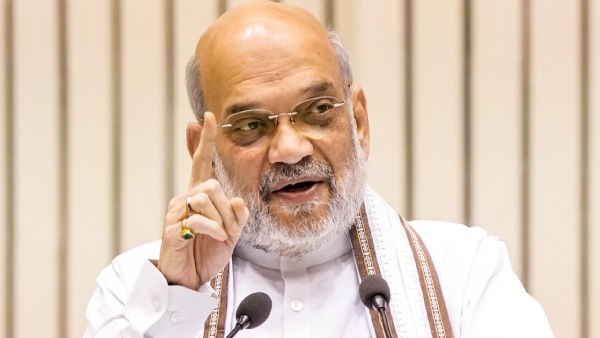 Sanjay Pandita Sanjay Pandita
Jammu, June 21: Nearly two months after suspending it after the Pahalgam terror attack, Union Home Minister Amit Shah announced that the government will not restore the Indus Water Treaty and is moving forward with plans to construct a canal to divert excess water from Rajasthan currently flowing to Pakistan.
The statement, made during an exclusive interview with a leading English daily, underscores India’s strategic shift in managing its water resources amid ongoing tensions with its neighbor.
The Indus Water Treaty, signed in 1960, allocates the waters of the Indus River system between India and Pakistan, granting India control over the eastern rivers (Sutlej, Beas, and Ravi) while Pakistan controls the western rivers (Indus, Jhelum, and Chenab). Shah’s remarks signal a departure from the treaty’s framework, with the proposed canal aimed at optimizing India’s share of water to bolster agricultural and economic development in Rajasthan. “We will ensure that every drop of water rightfully belonging to India is utilized for our people,” Shah stated, emphasizing the government’s commitment to national interests.
Shah reiterated the government The government is moving forward with plans to construct a canal to divert excess water from Rajasthan currently flowing to Pakistan.
The statement underscores India’s strategic shift in managing its water resources amid ongoing tensions with its neighbor.
The Indus Water Treaty, signed in 1960, allocates the waters of the Indus River system between India and Pakistan.
We will ensure that every drop of water rightfully belonging to India is utilized for our people.
The announcement on the Indus Water Treaty and the canal project is likely to escalate tensions with Pakistan, which has repeatedly raised concerns over India’s water management projects on the western rivers. However, Shah’s remarks align with the government’s broader narrative of prioritizing national sovereignty and resource optimization. The proposed canal in Rajasthan is expected to benefit farmers and local communities by enhancing irrigation and water availability in the arid state.
As India continues to assert its economic and strategic priorities, Shah’s statements signal a confident and assertive policy direction, with implications for both regional diplomacy and domestic development. Further details on the canal project and its timeline are awaited, while the government’s anti-terrorism and economic reforms continue to shape its agenda. | 